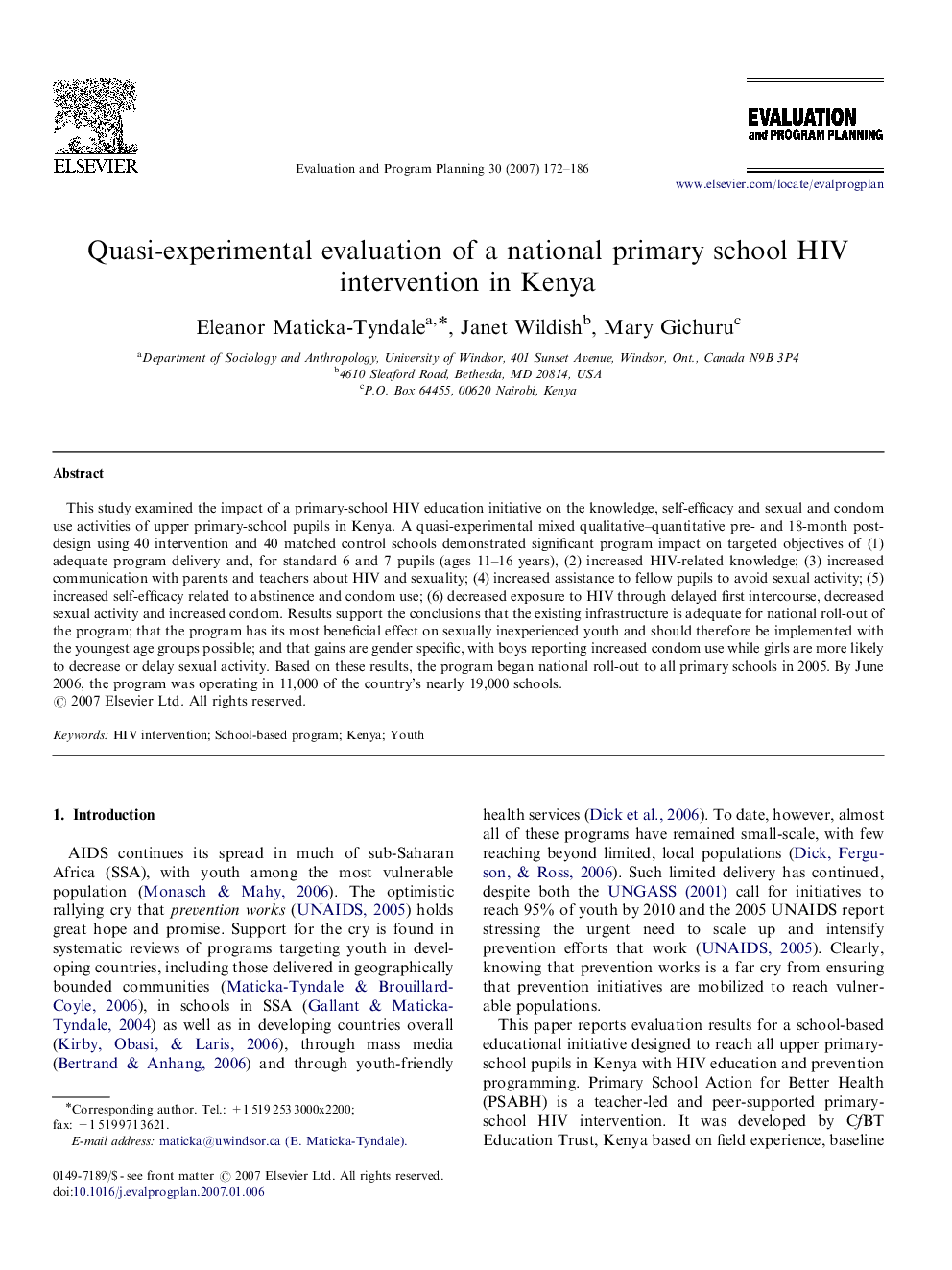| Article ID | Journal | Published Year | Pages | File Type |
|---|---|---|---|---|
| 322408 | Evaluation and Program Planning | 2007 | 15 Pages |
This study examined the impact of a primary-school HIV education initiative on the knowledge, self-efficacy and sexual and condom use activities of upper primary-school pupils in Kenya. A quasi-experimental mixed qualitative–quantitative pre- and 18-month post-design using 40 intervention and 40 matched control schools demonstrated significant program impact on targeted objectives of (1) adequate program delivery and, for standard 6 and 7 pupils (ages 11–16 years), (2) increased HIV-related knowledge; (3) increased communication with parents and teachers about HIV and sexuality; (4) increased assistance to fellow pupils to avoid sexual activity; (5) increased self-efficacy related to abstinence and condom use; (6) decreased exposure to HIV through delayed first intercourse, decreased sexual activity and increased condom. Results support the conclusions that the existing infrastructure is adequate for national roll-out of the program; that the program has its most beneficial effect on sexually inexperienced youth and should therefore be implemented with the youngest age groups possible; and that gains are gender specific, with boys reporting increased condom use while girls are more likely to decrease or delay sexual activity. Based on these results, the program began national roll-out to all primary schools in 2005. By June 2006, the program was operating in 11,000 of the country's nearly 19,000 schools.
